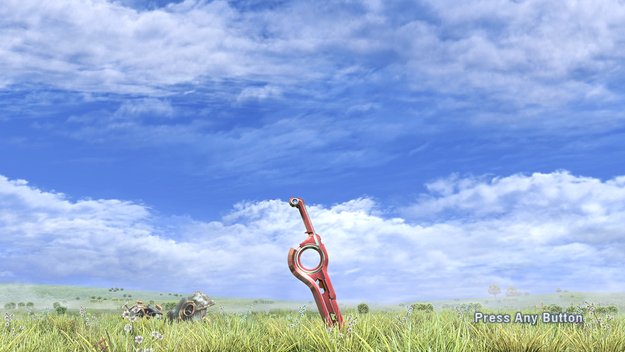It might seem odd that I’m posting Nintendo related news here, but Nintendo’s Reggie made an interesting comment in a recent interview with Siliconera that may be worth mentioning here.
Going off of that, how much do what fans want or say influence your decisions? [Operation Moonfall and Operation Rainfall are cited as examples here.]
I have to tell you—it doesn’t affect what we do. We certainly look at it, and we’re certainly aware of it, but it doesn’t necessarily affect what we do. I’ll give you an example. I mentioned earlier that our head of product development had a bet on X versus Y—we also had a bet around localizing Xenoblade.
I wanted to bring Xenoblade here. The deal was, how much of a localization effort is it? How many units are we going to sell, are we going to make money? We were literally having this debate while Operation Rainfall was happening, and we were aware that there was interest for the game, but we had to make sure that it was a strong financial proposition.
I’m paid to make sure that we’re driving the business forward—so we’re aware of what’s happening, but in the end we’ve got to do what’s best for the company. The thing we know [about petitions] is that 100,000 signatures doesn’t mean 100,000 sales.
I find this interesting because Operation Rainfall was ultimately a success and Nintendo was criticized for not localizing the games in the first place. Yes, there’s obviously a financial side to localizing these games and Nintendo needs to make a profit, but when you have Gamestop managing to sell copies of Xenoblade for $90, then one has to question Nintendo’s decision making here. Nintendo, obviously being very successful with the Wii at the time, didn’t see the merit in localizing JRPG’s. Yet it’s games like that which their core fanbase wanted. Now, without the help from the casual gamers who moved on to mobile and tablet games, Nintendo is struggling to sell their new console and more than ever needs the help from its core fans which they neglected to support with the previous Wii. I’m not saying that things would have turned out all that differently had they localized more games and focused less on shovelware for the Wii, but Operation Rainfall clearly highlighted a problem with Nintendo at the time and it seems they’re only slowly learning their lessons from that.
The reason I mention the above is because it shows what may seem like good decisions in the short term could turn out to be bad decisions in the long run. The way Sega is now limiting their games output in the West to “proven” franchises feels like it might turn out to be a bad decision as well. While Sony seems eager to expand their library of games and genres in all their markets, Sega is doing the exact opposite. And while Reggie might say fan campaigns don’t affect them, there are plenty of examples where such campaigns did have an impact and where other companies did listen. Let’s try to make a difference as well.


While I appreciate Reggie’s speaking about this, I have to wonder what Nintendo’s thoughts were beyond just being concerned about profitability. If the Wii U weren’t in such an anemic state, would Nintendo not have gotten exclusivity for Bayonetta 2 and published The Wonderful 101? What says they will be profitable besides the relative sparseness of the Wii U library? And in fact, the w101 bombed something fierce (which I do find sad for Platinum, though I don’t own a Wii U).
I have to think that being on the opposite side of oprainfall was a misfire. I don’t know about Pandora’s Tower, but XSeed has already said that their most profitable title was The Last Story, and Xenoblade continues to speak for itself despite the decision to limit it to retail only at Gamestop, plus limited shipments. Either they realize the importance of diversifying their library and have changed their mind with the Wii U, or they just don’t have some casual killer app title/enough killer apps.
So the question becomes – if Operation Rainfall didn’t convince them to localize the game when previously the decision internally was to not localize Xenoblade: what changed, if it wasn’t in fact oprainfall? I feel like there’s something missing from the discussion here.
But yes, not localizing the oprainfall titles would’ve been quite short-sighted, as it was much appreciated by the hardcore as a sendoff to the Wii. And if #ps4nodrm is any indication (alongside all of the Sony staffer tweets that had to be deleted, saying they heard us loud and clear!) fan campaigns definitely can have power.
It’s times like this I feel like I 100% don’t understand how the video game industry works. It seems bizarre that companies are so reluctant to release games such as these, despite how often they end up so well-received. I find it a bit disappointing to hear this manager basically say that what his core gaming audience wants ultimately means very little in comparison to the smell of cold hard cash (we can call it “Mario Kart money”). I get that at the end of the day we all want to make a nice profit, but I do feel that no small part of actually pulling that off is by maintaining a loyal fan base. (I mean, look at poor Capcom.)
But at any rate, it used to be that just about any random, bizarre, unmarketable game could get localized and released without video game companies batting an eye (Mr. Mosquito?), but now it feels like almost every time a new, well-crafted game with (in comparison) very broad, general appeal gets made in Japan, the #1 comment posted online is “Well, here’s another reason to learn Japanese.” Because it’s reached the point where the game getting localized is not the expectation–and the community in turn expresses pleasant surprise each time “a miracle” does come through.
Here’s what I’ve *never* understood. Why don’t video game companies just… hire a translator? You know, have the games translated as they’re being developed. Surely these people write their Japanese script for everything in the game at some point. Is it that difficult to find a translator and an editor, and just have the thing ready for international release on day one? Options-> Select Language-> Larger Pool of Potential Buyers. It seems like an obvious step to me, since it would instantly increase the number of people who can actually play the game–but perhaps this is where my ignorance sends me headfirst into a brick wall of international legalese and corporate management policies. I mean, when we get comments from the Bravely Default team such as “We thought overseas expansion was impossible,” *something* is going on that I don’t understand. It’s easily one of the most anticipated games period at this time.
I obviously don’t know the full story for these things, so I wouldn’t mind seeing some explanations for this sort of situation from video game developers. I mean, I look at what a game like Phantasy Star Online 2 offers, and even as someone who isn’t into MMOs, I see something that looks extremely impressive and definitely worth picking up. What is the hold-up for its localization then? MMOs are very popular in the West, as far as I’ve been able to tell. And with a Vita release in particular, Sega would have an especially unique product to offer in the form of a top-class portable MMO. The fact that there isn’t any communication with the fan base that is eager to spend money on their product is… disconcerting at best.
In the end there are plenty of interesting games still being released for me to enjoy, so I’m really not too worried–some companies seem to do just fine with getting most of their goods localized, after all. But therein lies my main point I suppose: It’s those companies that I’m going to actually buy games from.
The fact is that they often do have the translations ready and yet the game still isn’t released outside of Japan. For example the translation for Final Fantasy Type 0 is mostly ready. The same goes for PSO2 which is getting an English release in Southeast Asia. The reasons for not releasing those games have to do with publishers apparently thinking it’s not profitable for them. It seems they still haven’t learned despite the success of campaigns like Operation Rainfall. What’s even more odd about Reggie’s comments is that he’s making these comments while Sony has been enjoying a surge in popularity of the Playstation brand exactly because they’re listening to fans. They even started the Third Party Production team and are trying to work out deals to localize more games to their platforms.